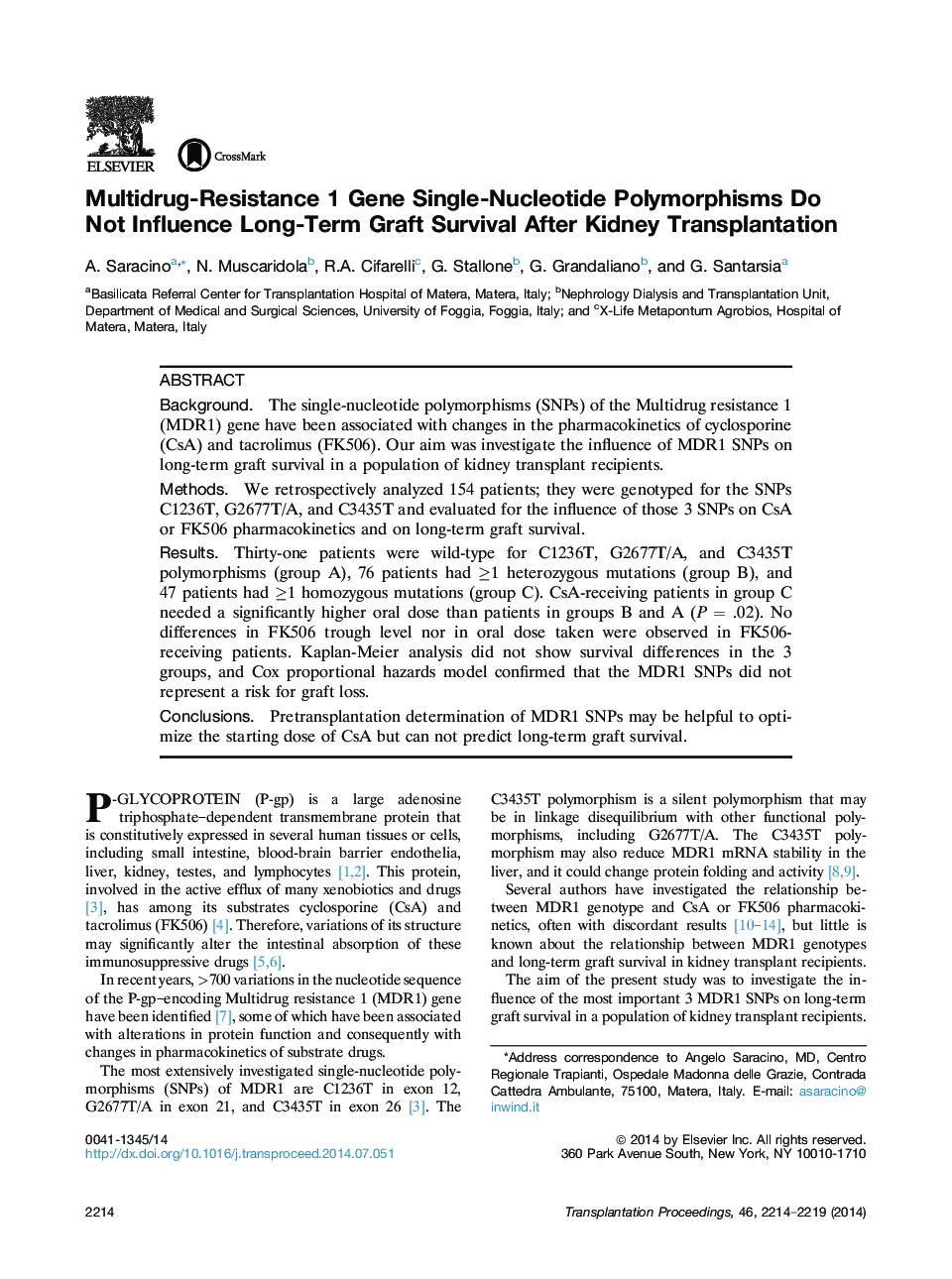| Article ID | Journal | Published Year | Pages | File Type |
|---|---|---|---|---|
| 4256422 | Transplantation Proceedings | 2014 | 6 Pages |
BackgroundThe single-nucleotide polymorphisms (SNPs) of the Multidrug resistance 1 (MDR1) gene have been associated with changes in the pharmacokinetics of cyclosporine (CsA) and tacrolimus (FK506). Our aim was investigate the influence of MDR1 SNPs on long-term graft survival in a population of kidney transplant recipients.MethodsWe retrospectively analyzed 154 patients; they were genotyped for the SNPs C1236T, G2677T/A, and C3435T and evaluated for the influence of those 3 SNPs on CsA or FK506 pharmacokinetics and on long-term graft survival.ResultsThirty-one patients were wild-type for C1236T, G2677T/A, and C3435T polymorphisms (group A), 76 patients had ≥1 heterozygous mutations (group B), and 47 patients had ≥1 homozygous mutations (group C). CsA-receiving patients in group C needed a significantly higher oral dose than patients in groups B and A (P = .02). No differences in FK506 trough level nor in oral dose taken were observed in FK506-receiving patients. Kaplan-Meier analysis did not show survival differences in the 3 groups, and Cox proportional hazards model confirmed that the MDR1 SNPs did not represent a risk for graft loss.ConclusionsPretransplantation determination of MDR1 SNPs may be helpful to optimize the starting dose of CsA but can not predict long-term graft survival.
